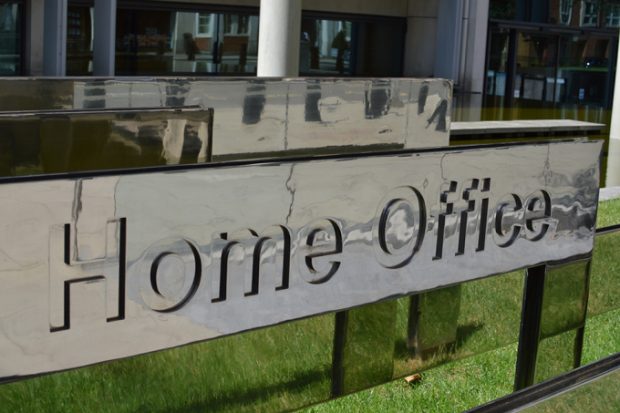
Today's leading stories include reaction to the launch of a national campaign to recruit 20,000 police officers and public opinion on police use of facial recognition.
Police recruitment
The Express reports that Prime Minister Boris Johnson declared that safe streets are the "absolute bedrock of society" as he launched a recruitment campaign for 20,000 police officers.
The article carries a comment by the Home Secretary saying that "We are getting on with the job and launching our national police recruitment campaign to get these new recruits on our streets as soon as possible".
It notes that the Chancellor has pledged £750 million for thousands of police officers to combat "horrifying stabbings" on Britain's streets and the growing threat of online criminals.
Regional media carried substantial coverage of the announcement.
Thames Valley Police Deputy chief constable Jason Hogg told the Reading Chronicle: “We are also looking to take advantage of this ‘once in a generation’ opportunity to shift the demographics of our force to better reflect the communities that we serve.”
Gloucestershire Live reported the launch of a “national billboard campaign has been launched at shopping centres and railway stations with new recruits being urged to 'Be a force for all'”.
Home Secretary Priti Patel said:
One of the government’s first actions was to commit to putting 20,000 new police officers on our streets, and the launch of today’s campaign shows we’ve wasted no time in getting on with the job.
Our police are the best in the word. They protect our people and communities and this government will ensure they are well resourced so they can tackle the crime on Britain’s streets.
By bolstering the police’s ranks we can help our dedicated officers tackle crime, protect communities and be a force for all.
Facial recognition
The Telegraph, Guardian, Independent and Star report that according to the first national survey of the public's attitude to facial recognition, more than half of people in Britain want the Government to curb police use of the technology.
The Guardian was focused on the research conducted by Ada Lovelace Institute with YouGov noting that 55% want restrictions on police use, while almost a third feel uncomfortable with forces using the technology at all.
Conversely, the Telegraph reported that according to the poll, police should be allowed to use facial recognition to investigate specific crimes and to protect the public at major events. The article highlighted that most people are opposed to unrestricted use by the police but two-thirds believe an outright ban would be wrong.
The reports follow yesterday's High Court ruling that police use of automatic facial recognition technology is lawful.
A Home Office spokesperson said:
We support the police as they trial new technologies to protect the public, including facial recognition, which helps them identify and locate suspects and criminals.
The Government welcomes this judgment, which confirms that there is a clear and sufficient legal framework for the use of live facial recognition technology in the UK.
However, we continue to work with the police and others to ensure that we maintain public trust and confidence in law enforcement.
